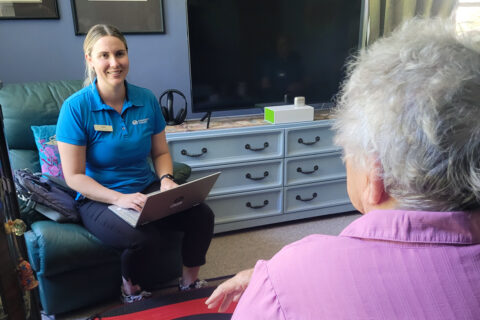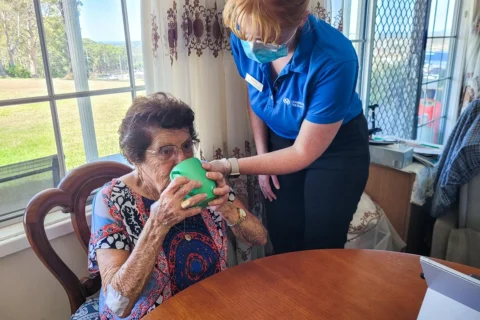Physiotherapists are experts at helping you get the most out of your life. They help you recover from injury, reduce pain and stiffness, increase mobility, prevent injuries and promote healthy lifestyles. As primary health providers, you don’t need a doctor’s referral to see a physiotherapist.
Physiotherapists collaborate with your current medical team and provide updates to your GP (with consent) to help support you on your treatment journey.
What is the goal of Physiotherapy?
The goal of physiotherapy is to use different techniques and exercises to improve the way your joints, bones and muscles move. A physiotherapist can help diagnose and treat an illness and injury, and support you in managing ongoing health conditions and disabilities.
The benefits of physiotherapy can include:
- Increasing mobility and flexibility
- Pain relief
- Reducing stiffness
- Improving strength and coordination
- Improved quality of life
- Lifestyle education and advice
Physiotherapists aim to empower people to be actively involved in their own care. That is, physiotherapists don’t just treat the symptoms of an issue. They help identify the underlying factors that may be causing a problem, and give you help and support to rectify and prevent further injury. This will help you maintain your recovery, prevent future problems and improve your overall wellbeing in the long term.
What methods do Physiotherapists use?
- Exercises for strength, flexibility, balance and coordination
- Massage and manual therapy techniques
- Health promotion advice around exercise, walking, posture, etc.
- Education
- Prescription of walking aids and braces to support recovery

What can Physiotherapists help with?
There are many conditions that could benefit from physiotherapy. You may seek physiotherapy to overcome the effects of an accident or injury, or you may want to manage an issue that you’ve had for many years. These conditions include:
- Acute injuries or pain in your muscles, bone and joints, such as back pain, neck pain, shoulder pain, and knee injuries
- Chronic (long term) conditions affecting your muscles and bones, such as osteoarthritis or osteoporosis
- Neurological disorders that affect your nervous system function, such as Parkinson’s disease
- Recovery following a stroke, or cerebral vascular accident (CVA)
- Women’s health conditions, such as incontinence
- Cardiorespiratory conditions that cause issues in the heart and lungs, such as cystic fibrosis, emphysema and pulmonary fibrosis
- Post-operative rehabilitation, for example joint or knee/hip replacement and other surgeries
- Postural stiffness and soreness
What qualifications do Community Therapy Physiotherapists have?
Community Therapy is a NDIS registered provider. All of our physiotherapists are also registered with AHPRA, and many of them are Australian Physio Association members also. Our clinicians hold public and professional indemnity insurance, possess current criminal record checks, as well as current working with children checks.
How do I access Physiotherapy?
Community Therapy have a dedicated mobile team of physiotherapists who love supporting individuals to achieve their goals.
Check out our adult physiotherapy or paediatric physiotherapy service pages to find out more. You can also Contact Us, or Make a Referral via phone, email or online now.


 November 27, 2024
November 27, 2024

